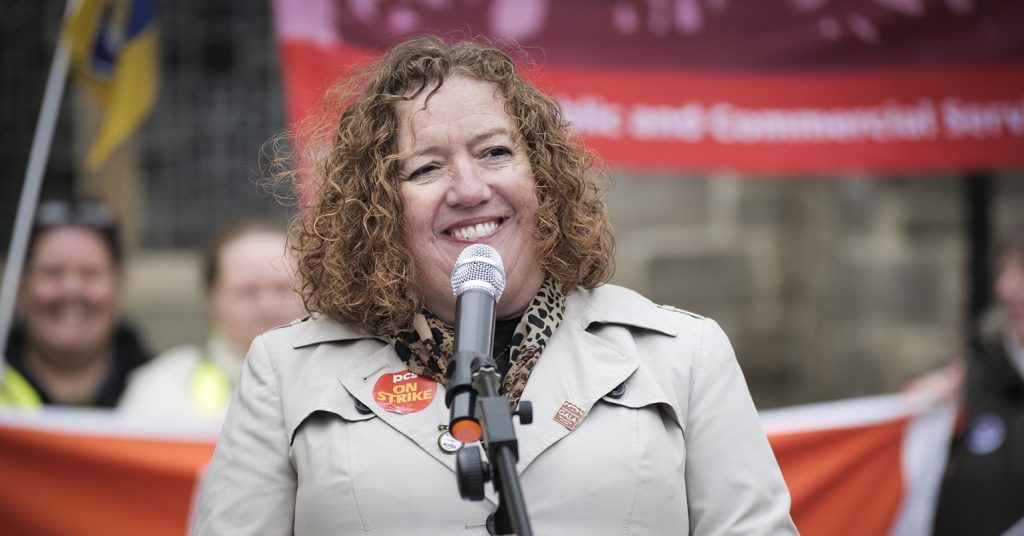Bangladeshi workers show how organised labour can defeat coronavirus

The global pandemic is stripping away the ‘ethical’ veneer nurtured by high street brands as they meet economic threats to the trillion-dollar garment industry by maneuvering to save money at the expense of workers’ lives.
As COVID-19 grips the planet, the garment sector faces catastrophic risks as millions of exploited workers in the global South already living a hand-to-mouth existence are abandoned to mass unemployment by factory owners and brands made rich by their labour.
Yet even in the eye of the storm one Bangadeshi worker-owned T-shirt factory supplying the anti-sweatshop campaign group No Sweat is demonstrating how organised labour can remain safe – and set an inspiring example by switching production to medical face masks and aprons.
Deep slump
Multi-billion dollar Western brands buoyed by huge fortunes from the sweat of low-paid garment workers around the world now face a deep slump as sales grind to a halt and countries go into lockdown.
The reaction of these brands to this crisis exposes the truth of the lofty claims they have cultivated about their sustainability. They are taking no action to protect the livelihoods of the least well-off in their supply chains, fighting instead to save every penny by canceling production contracts on a mass scale.
A recent report quotes retail giant H&M saying it has had to “temporarily pause new orders as well as evaluate potential changes on recently placed orders” due to the global drop in demand. While H&M states it is working with the International Labour Organization (ILO), trade unions, and other industry stakeholders to find solutions, its move will have a direct impact on lives.
But they are not alone, and brands everywhere are reneging on contracts and cancelling orders – including some already fulfilled – or pushing for heavy discounts on those already placed.
Reports are coming in from South East Asia to Central America of employers laying off workers due to cancellations. In Bangladesh more than 1,080 factories have had orders cancelled by brands, blighting the lives of 1.2 million workers. In India, 10,000 manufacturing units are reportedly struggling to pay their largely migrant workforce as new orders dry up. The global union, IndustriALL has reported that 5,000 people in Cambodia have already been thrown on the scrapheap, while in Myanmar more than 7,000 have so far been forced into unemployment by closures.
Central America
Workers in Central America say factory owners are using the pandemic as an excuse to slash wages, engineer lay-offs, and even block the formation of unions, according to the Solidarity Centre.
In El Salvador the government closed factories on 16 March but some owners made workers sign “severance agreements” that ensured they would not be rehired. Union activists say factories doing this are those where workers are trying to form unions – meaning bosses can reopen with a new, unorganized, workforce.
Other factories are being forced to close as governments ban gatherings of 50 or more people. Factories in Honduras have been forced to shut by the government in a bid to contain the spread of the virus – but this has not been good enough for some brands more concerned about profits. Solidarity Centre also reported that Honduran workers making clothes for Gildan – one of the world’s largest T-shirt manufacturers long accused of worker exploitation – remained open even after the government imposed a shutdown.
Bangladesh
The actions of major garment brands and sweatshop bosses during the early onset of the global pandemic is in stark contrast to the worker-owned factory from which the anti-sweatshop campaign group No Sweat sources its T-shirts.
Instead of forcing workers to risk their lives by coming into work, No Sweat’s suppliers have furloughed them on full pay and created a fund to ensure they are paid wages for the next three months.
A small team has been brought in – following appropriate health and social-distancing measures – to switch production from No Sweat T-shirts to medical face masks and aprons that will support the local health system, as COVID-19 takes hold in Dhaka, the densely populated capital city of Bangladesh.
The country lacks healthcare standards even remotely resembling those of Italy, which has been overwhelmed by the virus in recent weeks.
These workers – who formed the rescue committees during the 2013 Rana Plaza disaster when a building collapse killed more than 1,100 people – are now re-mobilizing to set up an emergency call centre to support colleagues and their families who need it, as well as organising ration deliveries, safe patient transportation, and safe ways of dealing with the deceased.
No Sweat is putting its full weight behind its supplier’s example: we are paying for our production orders in full and postponing delivery indefinitely.
More importantly, we are establishing a Garment Workers Emergency Solidarity Fund to funnel money directly to the communities that need it most – where the minimum wage is just £80 per month.
Every penny raised will help those workers hardest hit by this global crisis.
You can donate online via our website, visit: www.nosweat.org.uk




Leave a Reply